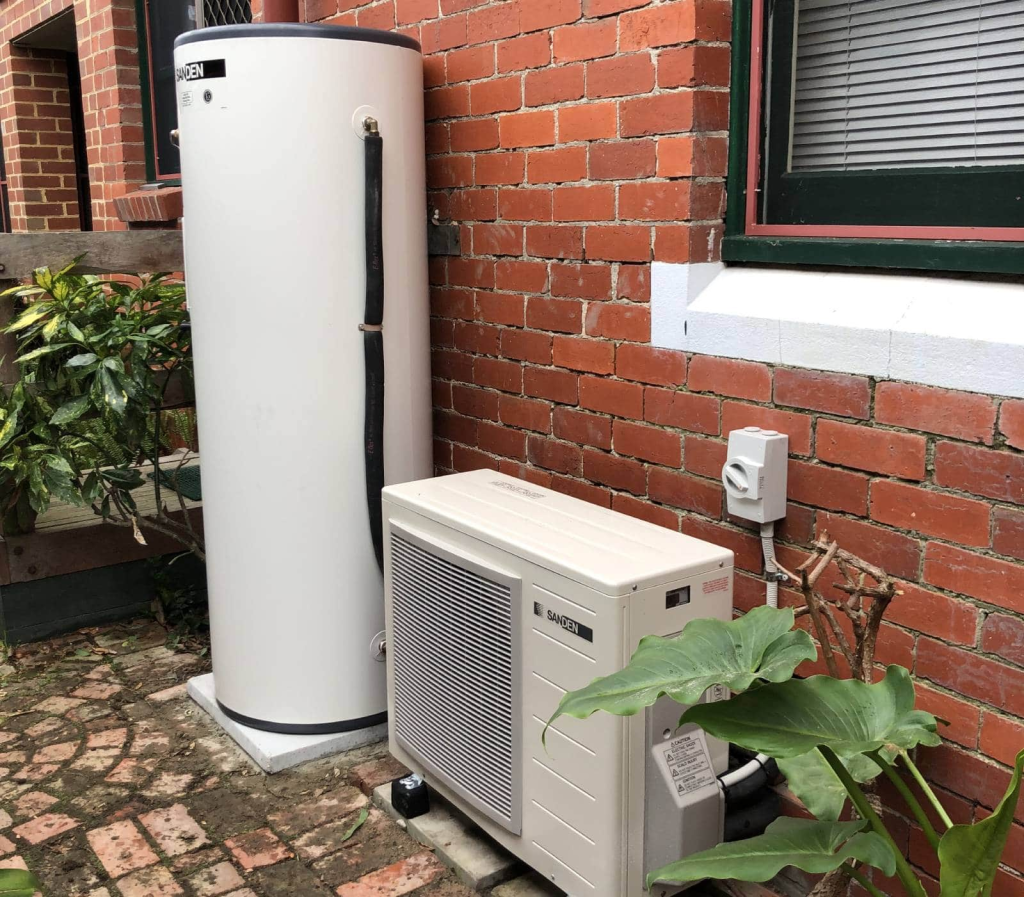Heat pumps are an excellent investment for any Australian property, whether you want to lower your energy bills or simply stay comfortable all year. But what is a heat pump? And how exactly do they work? Read on to find out.

Heat Pumps: The Fundamentals
A heat pump either pushes heat out of a space to cool it down or draws it in from outside to heat it. The former is the same basic principle as a refrigerator, while the latter is this in reverse. This works just as well in residential and commercial properties.
Experienced local service providers can look at your requirements and show you which type you need, which is vital for ensuring a hassle-free heat pump installation.
Crucial Components
Heat pumps are usually comprised of an outdoor exhaust-like unit and an indoor air handler — both of which are full of smaller components. These include:
- Refrigerant: This fluid transfers heat and releases it inside or outside the property
- Evaporator coil: This absorbs heat from the outside and contains the refrigerant
- Condenser coil: This releases absorbed heat into the property or water systems
- Compressor: This squeezes the refrigerant to increase its pressure/temperature
- Expansion valve: This, conversely, lowers the refrigerant’s temperature/pressure

How Heat Pumps Work: Step-by-Step
Heat pumps rely on the process of heat transfer, which shows that hot locations will always want to move heat towards cooler spaces. This means you can, for example, use the outside ambient heat to get hot water.
But how does a heat pump’s hot water work? Here’s a simple explanation:
- A fan draws the heat in the air across the evaporator coil
- The refrigerant inside heats up into a gas
- The compressor heats it further while adding pressure
- The refrigerant then passes over the condenser coil
- It releases its heat into the property’s water tank
- The now-cooled refrigerant enters an expansion valve
- The property’s hot water is now ready to use
As a bonus, because they transfer heat rather than generating it, your property will be a lot more efficient. This means a heat pump installation also lowers your bills long-term.
Installation Factors
You can only get one of these units through a professional heat pump installation. However, the particulars here depend on your property.
For example, you need larger airflows to accommodate the system — this means you may need to install new ducting. Talk to a qualified heat pump provider, and they’ll show you whatever your space requires.
Additionally, larger properties require more robust systems to meet their energy demands. You may even need multiple indoor units to adequately heat or cool the whole space.
Both of these affect the price of your heat pump installation, but you’ll still get great savings that may help offset these extra costs.

Heat Pump Maintenance
A heat pump can last up to 25 years, but this is only possible with the right maintenance. Simply leaving it to do its job means it’ll struggle to last even just ten years. Here are some good tips for looking after your heat pump:
- Change the filter at least once every three months; every month if you use it often.
- Have an expert inspect the coils and blades before the heating/cooling seasons.
- Make sure the pump’s outdoor unit has around 30-50 cm of clearance around it.
- Your first step if the unit isn’t working properly should always be to reset the motor.
If your unit needs a repair, don’t attempt this yourself — get a professional to help.
Arranging a Heat Pump Installation
Contact Solar Flow today to arrange an installation that’ll keep your property comfortable for the whole year. Our Sanden pumps will give you the savings you need, and our team will even help you make the most of ongoing local rebates.